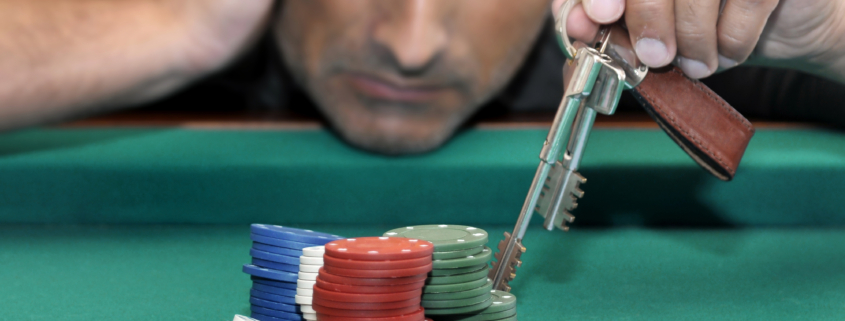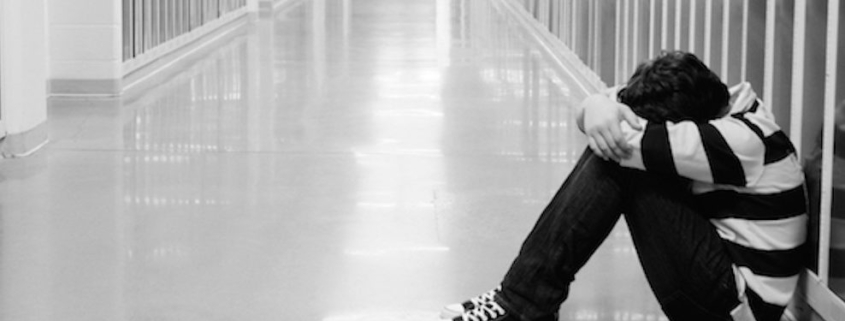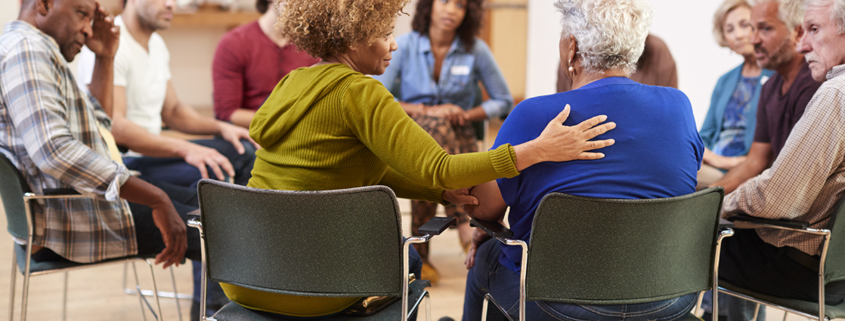In the heart of Orange County, Couples Rehab offers a beacon of hope for couples grappling with gambling addiction. This pervasive issue can silently erode relationships, financial stability, and emotional well-being. If you and your partner find yourselves entangled in the cycle of compulsive gambling, you’re not alone—and there’s a way out. At Couples Rehab, we provide specialized, compassionate care to help couples address their gambling addiction together, fostering recovery, healing, and a stronger bond.
Understanding Gambling Addiction: A Couple’s Perspective
Gambling addiction, or gambling disorder, is often referred to as the “hidden addiction” because its symptoms are not always outwardly apparent. However, its impact on relationships can be profound. For couples, compulsive gambling can lead to:
- Financial Strain: Accumulating debt, secretive spending, or depleted savings accounts.
- Emotional Distance: Increased conflict, feelings of betrayal, and communication breakdowns.
- Mental Health Struggles: Anxiety, depression, and heightened stress levels for both partners.
Couples often struggle with these issues in isolation, unsure of how to address the root problem. That’s where Couples Rehab in Orange County steps in, providing targeted support for couples who want to tackle gambling addiction as a team.
Why Seek Couples Rehab for Gambling Addiction?
Addressing gambling addiction as a couple offers unique advantages. Addiction doesn’t just affect the individual—it impacts the dynamic of the relationship. By pursuing treatment together, couples can:
- Rebuild Trust: Counseling sessions at Couples Rehab focus on repairing trust and fostering open communication.
- Share Accountability: Recovery becomes a shared journey, reducing feelings of isolation or blame.
- Strengthen Bonds: Working together toward a common goal can reignite intimacy and partnership.
Located in serene Orange County, Couples Rehab provides a supportive, distraction-free environment for couples to focus on healing. Our tailored programs emphasize both individual and relationship growth, ensuring long-term success.
Customized Treatment Plans at Couples Rehab in Orange County
At Couples Rehab, we understand that no two relationships are the same. That’s why we offer personalized treatment plans designed to meet the unique needs of each couple. Key components of our gambling addiction program include:
1. Comprehensive Assessment
The journey begins with an in-depth evaluation to understand the extent of the gambling addiction and its impact on your relationship. This step allows our team to craft a treatment plan that addresses both individual and shared concerns.
2. Individual and Couples Therapy
Therapy is the cornerstone of our approach. Through a combination of individual counseling and couples therapy, you’ll learn to identify triggers, develop healthier coping mechanisms, and communicate more effectively. Licensed therapists at Couples Rehab in Orange County guide sessions with compassion and expertise.
3. Financial Counseling
One of the most immediate consequences of gambling addiction is financial distress. Our program includes financial counseling to help couples regain control over their finances, create sustainable budgets, and rebuild financial trust.
4. Holistic Healing Options
To complement traditional therapy, Couples Rehab offers holistic healing methods, such as mindfulness training, stress management techniques, and recreational activities. These services help couples rediscover joy and balance in their lives.
5. Relapse Prevention Strategies
Sustained recovery requires proactive planning. Our team equips couples with practical tools and strategies to recognize and manage potential relapse triggers, ensuring they stay on the path to recovery.
The Role of Communication in Overcoming Gambling Addiction
For many couples, gambling addiction has damaged the foundation of communication. Feelings of guilt, shame, and resentment can make open dialogue seem impossible. However, rebuilding communication is essential for recovery. At Couples Rehab in Orange County, we emphasize the importance of:
- Active Listening: Partners learn to listen without judgment, fostering empathy and understanding.
- Honest Expression: Therapy sessions create a safe space to discuss emotions and concerns openly.
- Conflict Resolution: Couples develop tools to navigate disagreements constructively, reducing tension and fostering mutual respect.
How Gambling Addiction Affects Intimacy
Gambling addiction often creates emotional and physical distance in relationships. The secrecy and stress surrounding compulsive gambling can erode intimacy, leaving both partners feeling disconnected. Through therapy and targeted exercises, Couples Rehab helps couples:
- Reconnect emotionally by addressing underlying issues.
- Rediscover physical intimacy as trust and communication improve.
- Build a deeper understanding of each other’s needs and vulnerabilities.
Why Choose Couples Rehab in Orange County?
There are countless reasons why Couples Rehab stands out as a leading provider of gambling addiction treatment for couples in Orange County. Our approach is defined by:
- Expertise: Our licensed therapists specialize in addiction and relationship counseling, ensuring you receive the highest quality care.
- Holistic Care: From therapy to financial counseling, our programs address every aspect of recovery.
- Serene Environment: Located in picturesque Orange County, our facilities provide a tranquil setting that promotes healing and reflection.
- Couple-Centric Focus: Unlike traditional rehab programs, our approach prioritizes the relationship as a vital component of recovery.
Signs It’s Time to Seek Help
Acknowledging the need for professional help can be challenging, but it’s an important step toward recovery. Consider seeking treatment at Couples Rehab in Orange County if you or your partner:
- Struggle to control gambling urges, despite negative consequences.
- Experience frequent arguments or emotional distance related to gambling.
- Hide gambling habits or financial activity from each other.
- Feel overwhelmed by guilt, shame, or helplessness due to gambling addiction.
Remember, seeking help is a sign of strength, not weakness. At Couples Rehab, we’re here to support you every step of the way.

The Journey to Recovery: What to Expect
Recovery is a journey, and at Couples Rehab, we ensure couples feel supported and empowered throughout the process. Here’s what you can expect:
- Initial Consultation: During this first step, you’ll meet with our team to discuss your concerns and goals for treatment.
- Personalized Treatment Plan: Based on your assessment, we’ll create a plan that addresses your specific needs.
- Therapy and Workshops: Participate in individual and couples therapy sessions, as well as educational workshops designed to deepen your understanding of addiction and recovery.
- Ongoing Support: Even after completing the program, Couples Rehab offers resources and support to help couples maintain their progress.
Frequently Asked Questions About Couples Rehab for Gambling Addiction
1. What is couples rehab for gambling addiction?
Couples rehab for gambling addiction is a specialized treatment program designed to help couples address compulsive gambling behaviors together. These programs combine individual therapy, couples counseling, financial guidance, and relapse prevention strategies to tackle the addiction while strengthening the relationship. At Couples Rehab in Orange County, we offer tailored solutions to help couples break free from gambling addiction and rebuild trust and communication.
2. How does gambling addiction affect relationships?
Gambling addiction can cause significant strain on relationships by creating financial instability, emotional distance, and communication breakdowns. Partners may feel betrayed by secrecy or lies about gambling, leading to increased conflict and diminished trust. Couples Rehab in Orange County helps couples address these challenges by providing a safe space to heal together and develop healthier relationship dynamics.
3. Can couples recover from gambling addiction together?
Yes, couples can recover from gambling addiction together with the right support and resources. Through couples rehab, partners learn to identify and manage triggers, rebuild trust, and work collaboratively to create a stable, addiction-free future. Our program at Couples Rehab is specifically designed to empower couples to tackle addiction as a team, promoting long-lasting recovery.
4. What services does Couples Rehab in Orange County offer for gambling addiction?
At Couples Rehab, we offer a comprehensive range of services to address gambling addiction, including:
- Individual therapy to address personal triggers and behaviors.
- Couples counseling to rebuild trust and improve communication.
- Financial counseling to repair and manage finances.
- Holistic therapies, such as mindfulness and stress management.
- Relapse prevention planning for sustained recovery.
Each treatment plan is customized to meet the unique needs of the couple.
5. How long does a couples rehab program for gambling addiction last?
The duration of a couples rehab program for gambling addiction varies depending on the severity of the addiction and the couple’s specific needs. Programs at Couples Rehab in Orange County typically range from a few weeks to several months, with options for continued support through aftercare services.
6. Is couples rehab in Orange County only for gambling addiction?
While Couples Rehab in Orange County specializes in gambling addiction treatment, we also address other issues that may impact relationships, such as substance abuse, emotional struggles, and communication challenges. Our programs are designed to support couples in overcoming various obstacles to create healthier, more fulfilling relationships.
7. What are the signs that a couple needs rehab for gambling addiction?
Common signs that a couple may benefit from gambling addiction rehab include:
- Constant arguments about gambling or finances.
- Secrecy or lies related to gambling habits.
- Accumulating debt or financial instability.
- Feelings of guilt, shame, or frustration about gambling.
- Emotional distance or diminished intimacy in the relationship.
If these issues resonate, seeking help at Couples Rehab in Orange County can provide the support needed to heal.
8. Does couples rehab address financial issues caused by gambling?
Yes, financial counseling is a critical component of our program at Couples Rehab. Gambling addiction often leads to significant financial challenges, such as debt, bankruptcy, or strained budgets. Our financial counseling sessions help couples create sustainable financial plans, rebuild trust around money, and work together to regain financial stability.
9. Can couples rehab help prevent relapse?
Absolutely. Relapse prevention is a key focus of our gambling addiction programs at Couples Rehab in Orange County. Couples learn to identify triggers, develop coping mechanisms, and create strategies to manage stress and avoid situations that may lead to relapse. By working together, couples can build a strong foundation for sustained recovery.
10. How do I get started with Couples Rehab in Orange County?
Getting started with Couples Rehab in Orange County is simple. Contact our compassionate team to schedule an initial consultation, where we’ll discuss your needs, assess your situation, and develop a personalized treatment plan. Our dedicated staff is here to support you and your partner every step of the way, helping you take the first step toward a healthier, addiction-free future.
Building a Future Together
Overcoming gambling addiction as a couple is a transformative experience. It’s an opportunity to rebuild trust, rekindle love, and create a healthier, happier future. At Couples Rehab in Orange County, we believe in the power of partnership and the potential for growth through recovery.
Every relationship has challenges, but with the right support, those challenges can become stepping stones toward a stronger connection. If gambling addiction is affecting your relationship, don’t wait to seek help. Reach out to Couples Rehab today and take the first step toward breaking the habit together.
Contact Couples Rehab in Orange County
If you’re ready to start your journey to recovery, Couples Rehab is here to help. Our compassionate team is dedicated to supporting couples through every stage of the process. Contact us today to learn more about our gambling addiction treatment programs or to schedule a consultation.
Your future—and your relationship—are worth fighting for. Let Couples Rehab in Orange County guide you toward a brighter tomorrow.



















